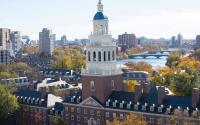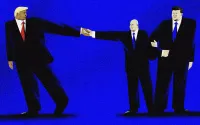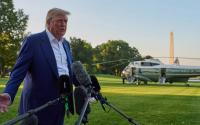19 November 2004 Charles Glass
The mortars flew into the governor's compound from the neighbouring houses. They found an oil tanker, which erupted in flames. Elsewhere in this northern city, rocket-propelled grenades strucka US convoy.
The military operation to control Fallujah was deemed a success by the Iraqi provisional government yesterday. But this is the battle for Mosul. And it continues. Yesterday's attacks were typical of the manner in which the struggle for this city, three times the size of Fallujah, is being played out. Small-scale insurgent attacks ensure that American military patrols fall short of controlling the city.
Earlier this week, a US military spokeswoman claimed US forces had retaken two-thirds of the city's police stations, although the insurgents had never captured more than eight about one-third. In a statement broadcast on local television, the governor, who had four of his guards wounded in the attack, urged Mosul residents to help "prevent" similar attacks. But unlike in Fallujah, the insurgents in Mosul are harassing American troops and their Kurdish allies while minimising the risk to themselves.
Sadi Ahmed Pire, a Patriotic Union of Kurdistan (PUK) Party representative, said the Baath party had regrouped in Mosul and was directing attacks. He said: "The Baath is in charge. The Islamists are following ...
"The [insurgent] plan was to eliminate the police stations, the Kurdish [party] offices and then the Kurdish community. The Baath party worked to create an ethnic war."
Kurdish intelligence sources believe that the Baath party reorganised its forces at a secret meeting at Hasakah, northern Syria, two months ago. At this meeting, the Iraqi Baathists are said to have elected a new leaderto succeed Saddam Hussein, Younes al-Ahmad.
It is impossible to confirm these reports, but Mosul has long been a bastion of support for Arab nationalism in general and Baathism in particular. It is unlikely this died with the Baathist regime in Baghdad.
Outside the PUK headquarters, Kurdish fighters fired heavy automatic weapons at insurgents, who fired mortars at Kurdish positions. Mr Pire insisted controlling Mosul was vital to preserving security in the Kurdish regional government zone a few miles to the east.
There were bullet holes on the PUK headquarters from a two-hour battle last Friday. "I was here," Mr Pire said. "My guards took part. Everyone here had to take part." He added that the attack on the headquarters had left 16 insurgents dead and six had been captured. As he spoke, American jets, which strafed parts of the city last Thursday, roared overhead.
How the struggle for control of Mosul will unfold is anything but clear. The Tigris river, snaking from north to south, bisects the city into the Arab right or west bank and the Kurdish left or east bank. Thousands of Arabs and Kurds live in each other's areas. So, too, do the Turkoman and Christian minorities, leading to fears of ethnic cleansing. Killings have already begun. "They killed eight Kurds on the right side," Mr Pire said of the insurgents on the west bank. "More than 30 families have been expelled."
A Kurdish newspaper reported Kurdish homes in the city, as well as Kurds wearing traditional clothing, had been attacked. Many Kurds and Christians have left Mosul for the Kurdish-controlled region.
Earlier this week I witnessed an exchange between a suspected insurgent,Mohammed Salem Jassem At-Ta'ee, 23, and his Kurdish captors as Mr At-Ta'ee lay bleeding on the floor of a PUK Party office in Mosul.
The Kurds claimed that Mr At-Ta'ee, an Arab, was one of four insurgents who attacked a PUK checkpoint. He claimed he was just passing at the time of the attack. "You are Saudi," an officer told him. Mr At-Ta'ee insisted he was Iraqi and lived in the Rashidieh quarter. When asked what he was doing so far from his own part of Mosul, he said he was shopping. "My brother is getting married in two days, so I would not do anything like that," he said.
His Kurdish captors clearly did not believe him.
* American troops in Fallujah found what appeared to be a command centre used by militants loyal to the Jordanian terrorist Abu Musab al-Zarqawi, responsible for many beheadings of foreign hostages. A separate raid nearby uncovered a bomb-making workshop where a four-wheel-drive vehicle registered in Texas was being converted into a bomb, according to a CNN crew embedded with the Americans.
http://news.independent.co.uk/low_res/story.jsp?story=584370&host=3&dir=75






